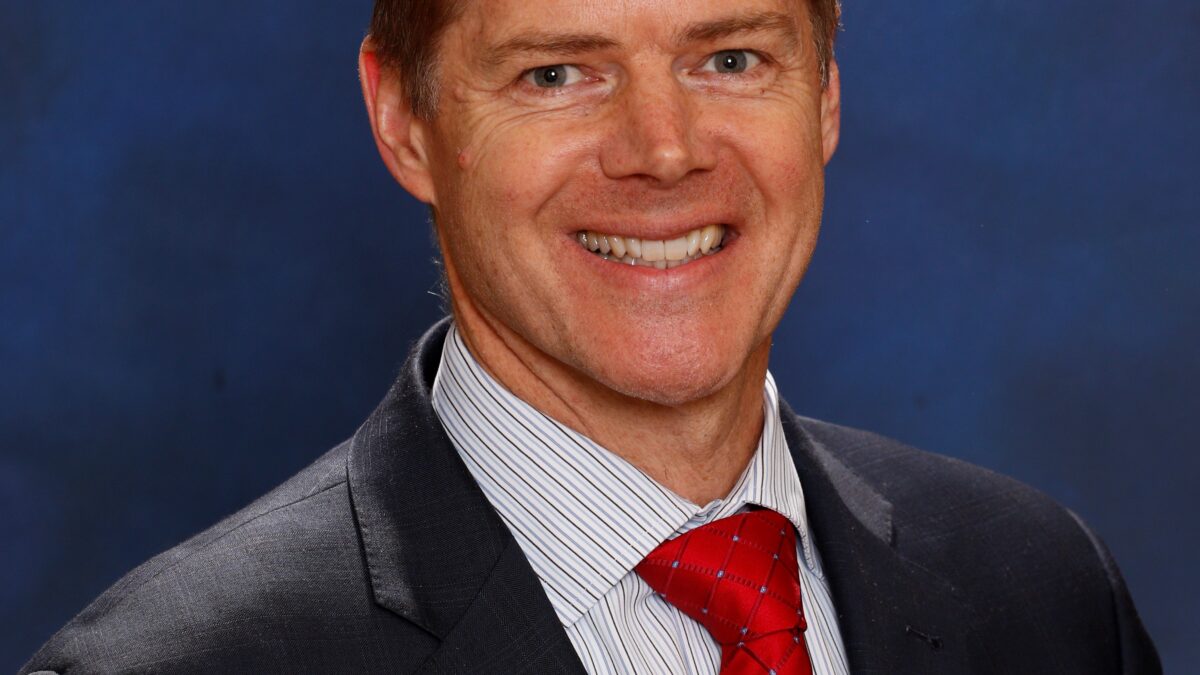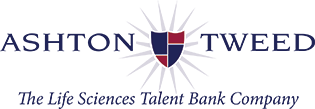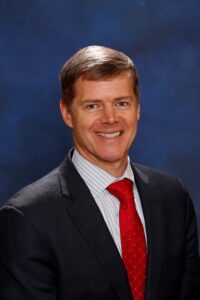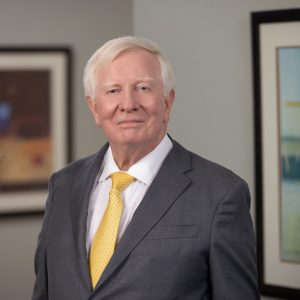First-Time CEO Takes on COVID-19 Shutdown in First Weeks at Ascend Therapeutics

President and CEO of Ascend Therapeutics
When Nicholas Hart joined Ascend Therapeutics, a pharmaceutical company specializing in women’s health, in January 2020, he was looking forward to tackling his first big challenge—relocating the company’s U.S headquarters from Virginia to Morristown, N.J. But the COVID-19 pandemic threw the first-time CEO a curveball by shutting down the United States just six weeks later.
Ascend Therapeutics, a subsidiary of Monaco-based, Besins Healthcare, is an integrated U.S. pharmaceutical company that markets two FDA-approved products for postmenopausal women’s health in the U.S. Mr. Hart has 25 years of experience in the pharmaceutical industry, but found himself in a novel situation at Ascend.
In an interview with Ashton Tweed, Mr. Hart discusses his biggest concern about doing business during a pandemic and who he turns to when he needs advice.
Ashton Tweed: Why was joining Ascend Therapeutics the right career move for you?
Nicholas Hart: Ascend is an amazing company. It’s been around since 2002 in the United States, but it’s part of a larger organization, Besins Healthcare, owned by the Besins family in Monaco. What intrigued me is that this company flies under the radar quite a bit, but has some really interesting products—male and female hormones. It was a place where I thought I could make a difference by bringing a little bit more structure to the company, as well as growing the organization through some potential acquisitions. And, I’d never been a CEO before, so moving into the CEO role also attracted me.
AT: You joined Ascend right after the company decided to relocate from Virginia to New Jersey, and just a few months before the COVID-19 shutdown. As the incoming CEO, it must have been a lot to handle all at once.
NH: Yes, it was very challenging. Six weeks after I joined the company, we started hearing more than rumblings about COVID-19. Around March 11, I conferred with our human resources lead at the time, as well as our medical director, and we made the decision to shut down in-person operations.
For the folks in Herndon, Va., it wasn’t overly challenging because most of them in one way, shape, or form had worked remotely before, either from home or on the road when they were traveling for business. So, transitioning to remote work for the home office staff was the least of my worries.
AT: What was your biggest concern?
My real concern was the effectiveness of the field sales folks, that is, their ability to drive growth—like everyone else, we were concerned about the lack of interaction with health care professionals. But we had the benefit of having five field sales personnel who already worked from home. So, we relied pretty heavily on them to educate and train the rest of the field sales team—who were used to talking about products with health care professionals face to face— on the ins and outs of remote selling and using Zoom or Microsoft Teams to make calls.
On the surface, it sounds like a smooth transition, but it took a fair amount of work to get the field sales representatives up to speed. They got there, but I would say in terms of efficiency, they’re nowhere near 100 percent. If they were at 100 percent efficiency before the pandemic, they’re probably at 75 to 80 percent efficiency now.
AT: What was your best decision regarding the company’s COVID-19 response?
NH: I think taking the field sales team out of the field early on in the process to train them was the best decision. About two weeks prior to making the decision, I talked to the lead trainer and said we should have some training in place for remote sales activities. She got to work on it very quickly, so that by the time we brought the team out of the field, we were already in a good position to train the salespeople on how to transition to working remotely.
Looking back on it, it’s probably common sense, but at the time, we didn’t know how long the pandemic was going to last, nor did we know whether we were going to be able to flip a switch and actually spend time live with health care professionals. So, in retrospect, that was a good decision, but I can’t pat myself on the back too much for that [he laughs].
AT: What did the re-training involve?
NH: We had the five representatives who were already doing remote sales and were well-versed in making an introduction and getting in front of the decision-makers. They trained the sales representatives who were used to going in live to health care providers on connecting with decision-makers and the best way to communicate the benefits of our products. Clearly, the representatives already knew about the products themselves, but needed to learn how to work effectively in a remote environment after being so grounded in face-to-face interactions.
AT: Meanwhile, you were also relocating the company’s U.S. headquarters. Did you move everyone or need to recruit new people?
NH: A little bit of both. We offered many of the people in Virginia the opportunity to move with us, but many chose not to make the move. So, we did have to recruit for some positions.
AT: How many employees does Ascend currently have?
NH: We have 41 people in the field and approximately 20 people in the home office.
AT: Was there any position in particular that proved difficult to fill?
NH: I guess the most challenging of those roles was the H.R. lead because obviously, H.R. was going to be instrumental in bringing other people into the organization. The new H.R. lead got a trial by fire when she joined because we were in the midst of the move, and we had to make some hires pretty quickly. But we’re at nearly 100 percent strength now.
AT: What’s next for Ascend?
NH: We’re in active talks with companies to acquire products right now. It’s a long process, but we feel pretty good about the fact that we can add value to products already on the market or acquire products that need to be developed in the final stages, like Phase IIII or just prior to FDA submission.
We also have two major products in the pipeline—a rare disease product and an oncology product for cancers in women. They’re both in mid-stage development; we think if all goes well, they’ll be out in the market in the United States in four to five years.
AT: What advice would you give an aspiring CEO?
NH: Years ago, a colleague was fond of saying: “None of us is as smart as all of us.” So, my advice is, if you don’t have the answer, look around—there’s likely somebody who does. If you don’t have the answer yourself, go out and look for it, don’t be afraid to ask others, or admit you don’t have a workable solution.
AT: Who do you usually go to for answers?
NH: I have a good network of former bosses, supervisors, as well as colleagues and folks who have worked on my teams. I’ve also learned never to burn bridges because somebody with whom you worked years ago might have the answer you need. If you may maintain reasonable contact with people, they become resources.
Nicholas Hart is the President and CEO of Ascend Therapeutics. He has held positions from sales representative through president at large and small pharmaceutical companies throughout his career. Mr. Hart earned an MBA from the New York University Stern School of Business and graduated from the U.S. Military Academy at West Point. He lives in New Jersey and is married to his high school sweetheart. The couple has three daughters.
Question for readers:
What have been the most challenging organizational decisions you’ve made related to the COVID-19 pandemic?






